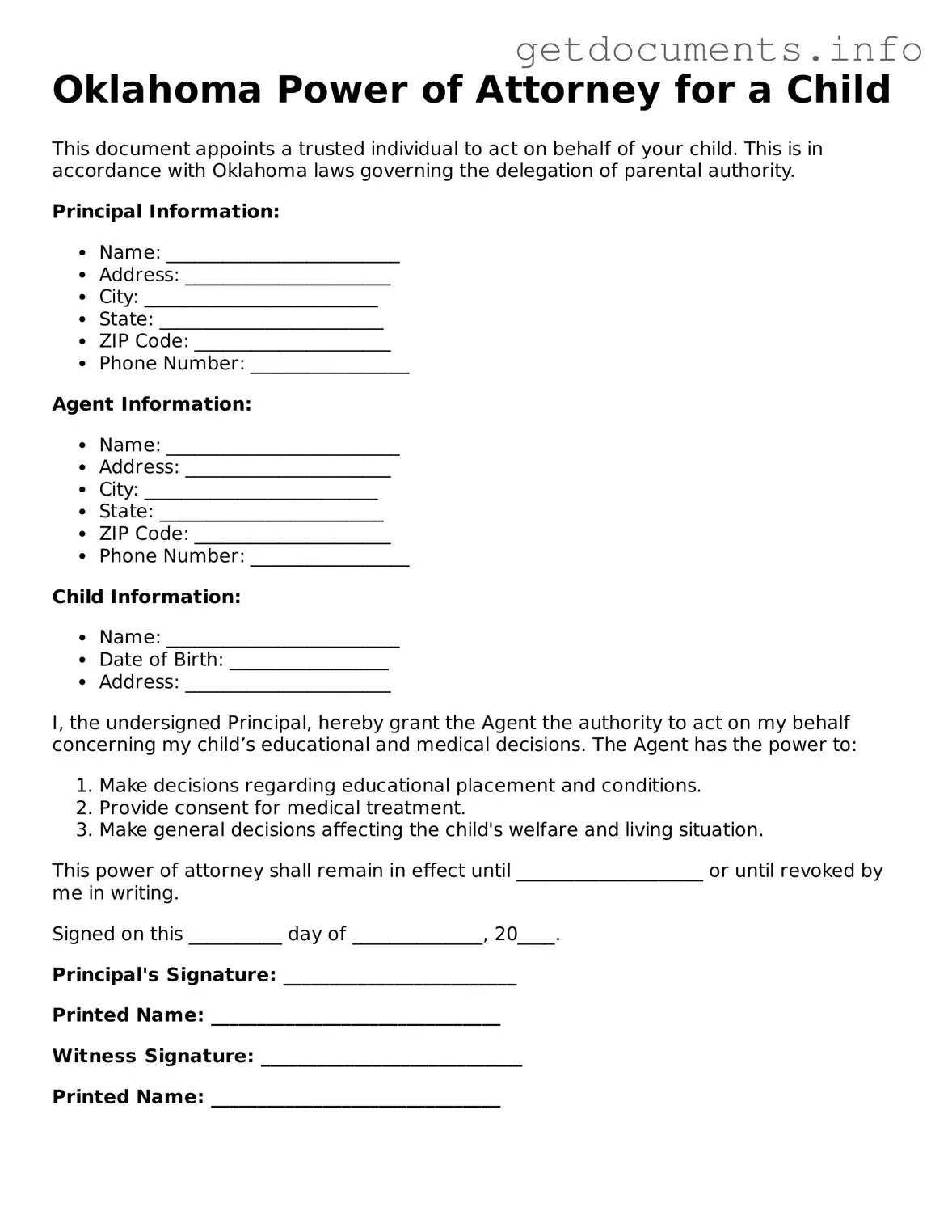Free Power of Attorney for a Child Template for Oklahoma
The Oklahoma Power of Attorney for a Child form is a legal document that allows a parent or guardian to grant another individual the authority to make decisions on behalf of their child. This form is particularly useful in situations where the parent is temporarily unable to care for their child, such as during travel or medical emergencies. Understanding the nuances of this form can empower caregivers and ensure that children's needs are met without interruption.
To fill out the form, click the button below.
Access Power of Attorney for a Child Editor

Free Power of Attorney for a Child Template for Oklahoma
Access Power of Attorney for a Child Editor
Got places to be? Complete the form fast
Fill out Power of Attorney for a Child online and avoid printing or scanning.
Access Power of Attorney for a Child Editor
or
⇩ PDF File
